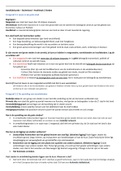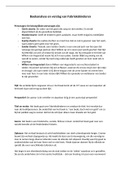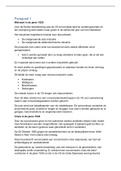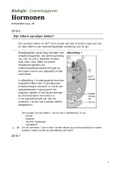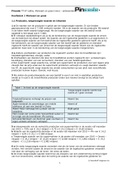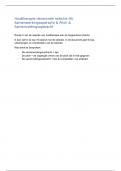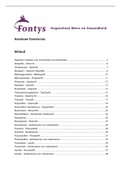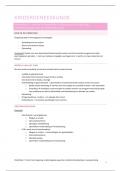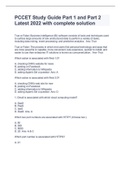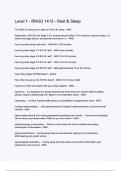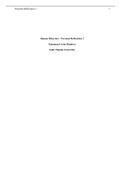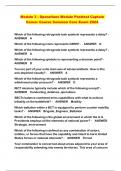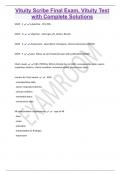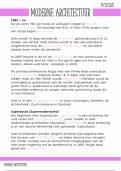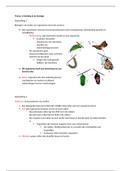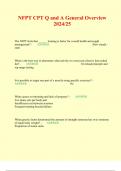Thanyha Kirisanker
Unit 5 Keeping Children Safe
P3 + M2
Personal hygiene is important as you touch food, and other objects as well as the children. In
England the safeguarding and welfare requirements of the EYFS state that early year’s settings have
a duty to maintain hygiene procedures to keep children safe and healthy and to prevent infection. In
early years settings in England, they are required to follow the guidelines of Public Health England.
Washing Hands
Handwashing is one of the most important ways of controlling the spread of infection. As
practitioners you need to be role models for handwashing. Children need to be taught to wash their
hands early one and it must be supervised until adults feel that the children are capable and are
doing it right every time. The recommended method is the use of liquid soap, warm water, and
paper towels. Children must always wash their hands after using the toilet, before eating or handling
food, and after handling animals. Cover all cuts and abrasions with waterproof dressings. 1 Children
and adults should wash their hands after going to the toilet as you could be carrying bacteria from
when you used the toilet which can be passed from person to person to make people sick. Germs
from unwashed hands can get into food and drinks while people prepare or consume them. They
should wash their hands before eating or drinking as you could be carrying bacteria on your hands
from whatever you were doing before and if you don’t wash your hands the bacteria will go into the
food or drink you are going to eat, and you will inject the bacteria which could lead to infections.
Adults and children should wash their hands after touching animals as they may contain a lot of
bacteria if the animal is not cleaned properly, and this could also increase the spread of infections.
At my placement, they have a small therapy dog and after handling the dog the children have been
told to go and wash their hands. They should wash their hands after they go outside and after messy
play. Adults should also wash their hands before preparing of all food as you can spread germs in the
kitchen such as salmonella which can make the adult and children very sick. All canteen staff always
wash their hands before preparing and serving food to avoid cross contamination. They should wash
their hands after touching raw meat/fish, this is because the germs can spread from uncooked meat
and fish and adults could use gloves to prevent germs from your hands to the food. They should also
wash their hands before and after every nappy change and after dealing with waste. At my
placement when I go into my placement in the morning the children leave the bags and bring their
reading books into class and before they go and sit down and do the register, they all must wash
their hands and all the teachers do too before the children come into the classroom. They also line
up before lunch so they can all wash their hands before eating. It is important the practitioner with
the children to have a good personal hygiene to prevent the spread of infection they should wash
hands before handling the children, have their hair tied back so then they don’t get headlice if the
children they are working with have it. They should shower daily and wash clothes to wear clean
clothes to work every day.
Spread of infection and prevention
To prevent the spread of infections such as chickenpox or gastroenteritis, early childhood settings
should have policies in place to prevent children from returning to a setting too soon after infection.
There are three main ways that infection can enter the body: inhalation, ingestion, or through a
wound. Some microorganisms can cause illness through airborne droplets when an infected person
coughs or sneezes. These tiny droplets are inhaled and swallowed, infecting the next person.
Airborne droplets can travel great distances. Colds, norovirus, and measles travel this way. Influenza
1
https://www.sherwoodparkprimary.co.uk/bexley/primary/sherwood/arenas/websitecontent/web/Health
%20&%20Safety%20Policy%202021-21103.pdf]
, Thanyha Kirisanker
Unit 5 Keeping Children Safe
P3 + M2
forms in heavier droplets so for it to spread you will need to be in close contact with the person.
Some diseases and parasites can be passed between people by skin-to-skin contact. Others can be
transmitted by head-to-head contact which is like head lice. Food poisoning can spread when
someone has passed faeces and wiped themselves but hasn’t washed their hands thoroughly.
Because the microorganism is on your hands, it can be ingested or spread to others through touch.
Disease is transmitted beginning with someone who has the infection. The infectious pathogen
leaves the sick person’s body. The infectious pathogen reaches another child and enters his body.
Then the next child develops the infection.
Inhalation
Inhaling droplets of moisture containing viruses, bacteria from an infected person who has coughed
or sneezed. Also, touching surfaces covered by droplets or from the person’s hands and then
touching our own face or eyes. The most common ways the infection travels through inhalation are
colds and flu, measles, mumps, rubella, whooping cough, chickenpox, conjunctivitis, viral gastro-
enteritis. To prevent infection through inhalation is difficult to avoid getting infected as the bacteria
is in the air that we breathe in. You could cover mouth or nose when coughing or sneezing, washing
hands if you have contact with items or fabrics contaminated with droplet fluids, ventilate the rooms
well so then all the bacteria will leave through the window and the children are able to get fresh air.
Lastly it is important to encourage parents to keep their infectious child out of the nursery until the
child is well. The incubation period is 13-17 days. It can be minimized by airing rooms, washing
hands, quickly recognizing that the child has the infection, quarantining children, and excluding
children for 5 days.
Ingestion
Ingestion is eating contaminated food or drinking contaminated water, sucking fingers, thumbs,
biting fingernails, smoking a cigarette with dirty hands. Hands can become contaminated from
touching pets, farm animals, raw meat and poultry, soiled nappies. When you ingest bacteria you
can catch salmonella, food poisoning, dysentery, hepatitis A and threadworms. Salmonella can cause
cramps, nausea, vomiting and diarrhea. Food poisoning can cause upset stomach. Dysentery starts
with a fever, nausea, vomiting, abdominal cramps and diarrhea. The episodes of diarrhea may
increase to as much as once and hour with blood, mucus, and pus in the child’s stool. Hepatitis A is a
serious liver disease caused by the hepatitis A virus. Children with the virus often don’t have
symptoms, but they often pass the disease to others. Threadworms affect young children because
they often forget to wash their hands and they share toys with others. The symptoms of
threadworms could be worms in bowel movement that look like earthworms, worms coming out of
the nose or mouth, stomach pain, coughing. To prevent ingesting infections, you should always wash
hands after touching animals and pets, using the toilet, and changing nappies. You should always
wash hands before and after preparing food and before eating to avoid cross contamination.
Inoculation
Inoculation is the transfer of infection by blood or certain bodily fluids from an infected person,
getting into the body of another person through cuts or damaged skin, by injection through the skin
via body piercing, tattoos. Through inoculation you can catch HIV which can lead to AIDS, hepatitis B
which is most spread from mother-to-child during birth while hepatitis C is more commonly spread
using unclean needles used to inject drugs. To prevent the spread of infection through inoculation is
to cover any cuts and abrasions with waterproof dressing if giving care dealing with blood, use of
Unit 5 Keeping Children Safe
P3 + M2
Personal hygiene is important as you touch food, and other objects as well as the children. In
England the safeguarding and welfare requirements of the EYFS state that early year’s settings have
a duty to maintain hygiene procedures to keep children safe and healthy and to prevent infection. In
early years settings in England, they are required to follow the guidelines of Public Health England.
Washing Hands
Handwashing is one of the most important ways of controlling the spread of infection. As
practitioners you need to be role models for handwashing. Children need to be taught to wash their
hands early one and it must be supervised until adults feel that the children are capable and are
doing it right every time. The recommended method is the use of liquid soap, warm water, and
paper towels. Children must always wash their hands after using the toilet, before eating or handling
food, and after handling animals. Cover all cuts and abrasions with waterproof dressings. 1 Children
and adults should wash their hands after going to the toilet as you could be carrying bacteria from
when you used the toilet which can be passed from person to person to make people sick. Germs
from unwashed hands can get into food and drinks while people prepare or consume them. They
should wash their hands before eating or drinking as you could be carrying bacteria on your hands
from whatever you were doing before and if you don’t wash your hands the bacteria will go into the
food or drink you are going to eat, and you will inject the bacteria which could lead to infections.
Adults and children should wash their hands after touching animals as they may contain a lot of
bacteria if the animal is not cleaned properly, and this could also increase the spread of infections.
At my placement, they have a small therapy dog and after handling the dog the children have been
told to go and wash their hands. They should wash their hands after they go outside and after messy
play. Adults should also wash their hands before preparing of all food as you can spread germs in the
kitchen such as salmonella which can make the adult and children very sick. All canteen staff always
wash their hands before preparing and serving food to avoid cross contamination. They should wash
their hands after touching raw meat/fish, this is because the germs can spread from uncooked meat
and fish and adults could use gloves to prevent germs from your hands to the food. They should also
wash their hands before and after every nappy change and after dealing with waste. At my
placement when I go into my placement in the morning the children leave the bags and bring their
reading books into class and before they go and sit down and do the register, they all must wash
their hands and all the teachers do too before the children come into the classroom. They also line
up before lunch so they can all wash their hands before eating. It is important the practitioner with
the children to have a good personal hygiene to prevent the spread of infection they should wash
hands before handling the children, have their hair tied back so then they don’t get headlice if the
children they are working with have it. They should shower daily and wash clothes to wear clean
clothes to work every day.
Spread of infection and prevention
To prevent the spread of infections such as chickenpox or gastroenteritis, early childhood settings
should have policies in place to prevent children from returning to a setting too soon after infection.
There are three main ways that infection can enter the body: inhalation, ingestion, or through a
wound. Some microorganisms can cause illness through airborne droplets when an infected person
coughs or sneezes. These tiny droplets are inhaled and swallowed, infecting the next person.
Airborne droplets can travel great distances. Colds, norovirus, and measles travel this way. Influenza
1
https://www.sherwoodparkprimary.co.uk/bexley/primary/sherwood/arenas/websitecontent/web/Health
%20&%20Safety%20Policy%202021-21103.pdf]
, Thanyha Kirisanker
Unit 5 Keeping Children Safe
P3 + M2
forms in heavier droplets so for it to spread you will need to be in close contact with the person.
Some diseases and parasites can be passed between people by skin-to-skin contact. Others can be
transmitted by head-to-head contact which is like head lice. Food poisoning can spread when
someone has passed faeces and wiped themselves but hasn’t washed their hands thoroughly.
Because the microorganism is on your hands, it can be ingested or spread to others through touch.
Disease is transmitted beginning with someone who has the infection. The infectious pathogen
leaves the sick person’s body. The infectious pathogen reaches another child and enters his body.
Then the next child develops the infection.
Inhalation
Inhaling droplets of moisture containing viruses, bacteria from an infected person who has coughed
or sneezed. Also, touching surfaces covered by droplets or from the person’s hands and then
touching our own face or eyes. The most common ways the infection travels through inhalation are
colds and flu, measles, mumps, rubella, whooping cough, chickenpox, conjunctivitis, viral gastro-
enteritis. To prevent infection through inhalation is difficult to avoid getting infected as the bacteria
is in the air that we breathe in. You could cover mouth or nose when coughing or sneezing, washing
hands if you have contact with items or fabrics contaminated with droplet fluids, ventilate the rooms
well so then all the bacteria will leave through the window and the children are able to get fresh air.
Lastly it is important to encourage parents to keep their infectious child out of the nursery until the
child is well. The incubation period is 13-17 days. It can be minimized by airing rooms, washing
hands, quickly recognizing that the child has the infection, quarantining children, and excluding
children for 5 days.
Ingestion
Ingestion is eating contaminated food or drinking contaminated water, sucking fingers, thumbs,
biting fingernails, smoking a cigarette with dirty hands. Hands can become contaminated from
touching pets, farm animals, raw meat and poultry, soiled nappies. When you ingest bacteria you
can catch salmonella, food poisoning, dysentery, hepatitis A and threadworms. Salmonella can cause
cramps, nausea, vomiting and diarrhea. Food poisoning can cause upset stomach. Dysentery starts
with a fever, nausea, vomiting, abdominal cramps and diarrhea. The episodes of diarrhea may
increase to as much as once and hour with blood, mucus, and pus in the child’s stool. Hepatitis A is a
serious liver disease caused by the hepatitis A virus. Children with the virus often don’t have
symptoms, but they often pass the disease to others. Threadworms affect young children because
they often forget to wash their hands and they share toys with others. The symptoms of
threadworms could be worms in bowel movement that look like earthworms, worms coming out of
the nose or mouth, stomach pain, coughing. To prevent ingesting infections, you should always wash
hands after touching animals and pets, using the toilet, and changing nappies. You should always
wash hands before and after preparing food and before eating to avoid cross contamination.
Inoculation
Inoculation is the transfer of infection by blood or certain bodily fluids from an infected person,
getting into the body of another person through cuts or damaged skin, by injection through the skin
via body piercing, tattoos. Through inoculation you can catch HIV which can lead to AIDS, hepatitis B
which is most spread from mother-to-child during birth while hepatitis C is more commonly spread
using unclean needles used to inject drugs. To prevent the spread of infection through inoculation is
to cover any cuts and abrasions with waterproof dressing if giving care dealing with blood, use of


